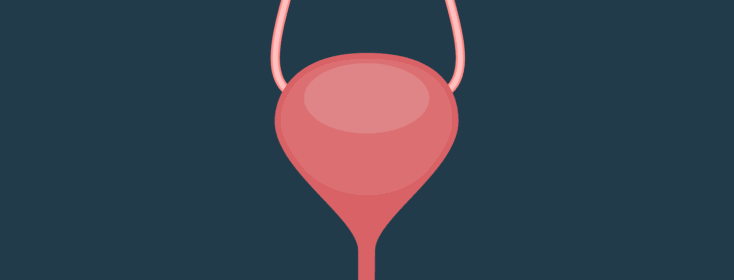What's a Bladder Spasm? I Found Out the Hard Way
After my surgery, a nurse came to the recovery room to prepare me for discharge. In her hand were prescriptions for three different medicines – an antibiotic to prevent UTIs, a painkiller, and a bladder relaxant. The latter two, she explained, were for bladder spasms, which could occur after surgery.
I had no idea what bladder spasms were
I had never heard of bladder spasms before. According to WebMD, a person's bladder normally fills up with urine and gradually you feel the need to urinate. But with a bladder spasm, the bladder contracts suddenly and involuntarily, and that urge to go is immediate, overwhelming, and sometimes painful. Bladder spasms are common after surgery, and can be an unhappy consequence of having a catheter, which I would for the three weeks after surgery.
But at the time of my discharge, I knew none of this. I was told that the painkiller and bladder relaxant were “just in case” I had bladder spasms, and that they “could hurt a little,” if I got them at all. What I did not realize was that the bladder relaxant kept spasms from happening in the first place, and that they are incredibly common with a catheter in place. So I pocketed the latter two prescriptions and hoped I wouldn't get a bladder spasm – whatever those were.
Unfortunately, I did.
Symptoms overwhelmed me
About a week after surgery, I was slowly getting back to normal. I had no pain at all, spent most of the day vegging out on the couch watching Downton Abbey, and had even (kind of) gotten used to emptying my catheter bag at regular intervals But one afternoon, a searing urge to pee overwhelmed me. Panicked, I hobbled to the bathroom and emptied my catheter bag – but the sensation didn't die. My anxiety rising, I sat on the toilet and tried to push the pee out of me, into the catheter or into the toilet – but nothing happened. Within a few minutes, I was shrieking in pain, debating whether I should pull the catheter out myself. (I didn't. For the record, that would have been a terrible idea.)
Staying on top of medications to prevent bladder spasms
Somehow, despite the pain, I managed to call the nurse hotline at my urologist's office. Calmly, she explained that the pressure and pain I was feeling was, indeed, a bladder spasm. She told me to take the painkiller they had prescribed and start regularly taking the muscle relaxer. Man, I thought. If I had known a bladder spasm felt like that, I would have taken the medication to begin with!
For the next couple weeks, until I got the all-clear to have my catheter removed, I took my muscle-relaxant religiously. And when one or two smaller muscle spasms occurred, I took the pain meds quickly, before they blossomed into something more painful. And the rest of my recovery went smoothly, for the most part.
Tips to any newcomers
Lesson learned: bladder spasms hurt. Like, a lot. And although they are common, they are also apparently pretty preventable. I'm part of a few bladder cancer support groups, and when newcomers ask for tips and advice, my answer is always the same: take your meds and prevent bladder spasms before they start.
Would you like to talk to others in the bladder cancer community about tips for newcomers? Reach out in our forums.

Join the conversation